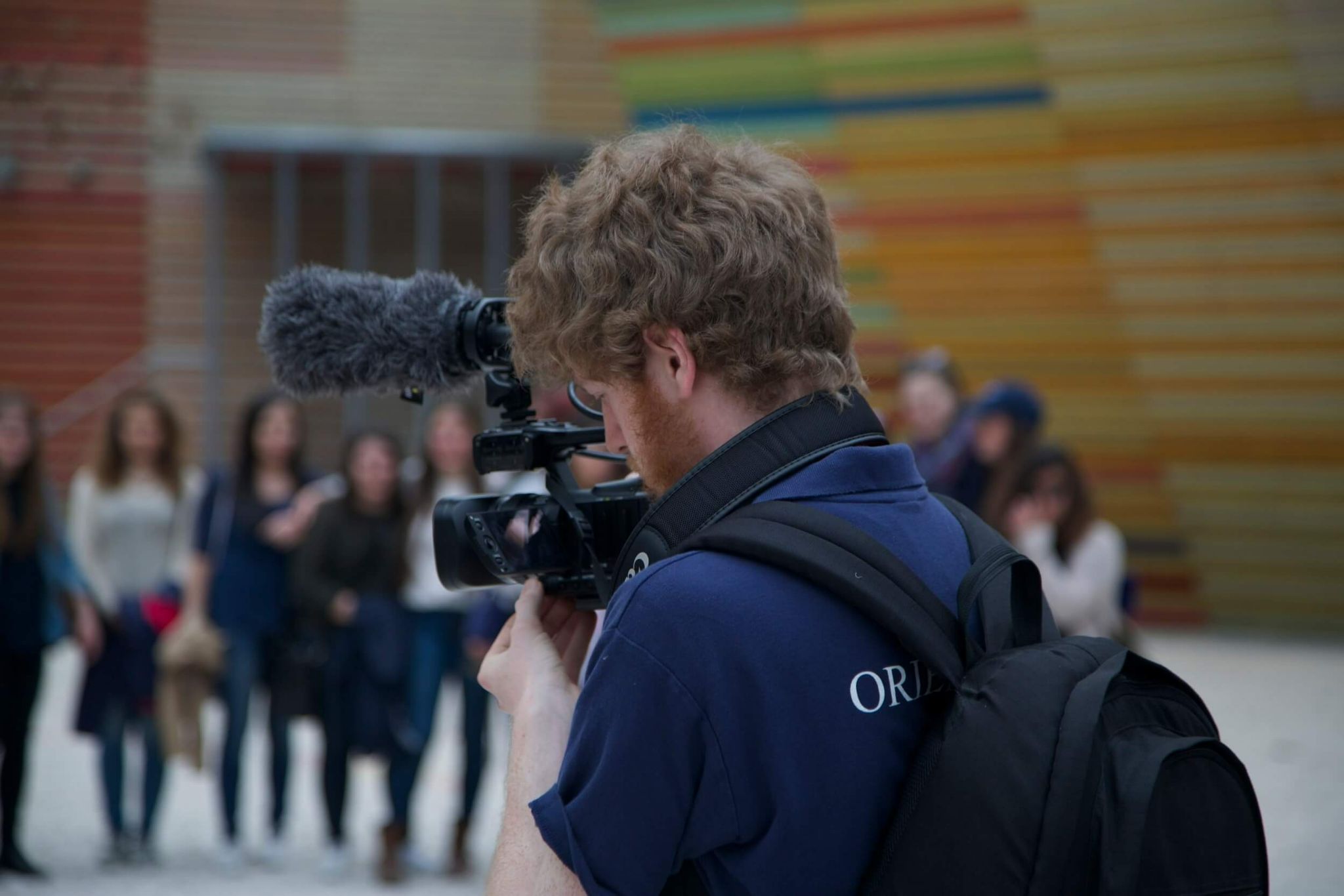

A communications degree is likely the perfect place to start if you’re interested in a film or media career. When you study Communications at John Cabot University, you can look forward to gaining a profound understanding of various media channels and the social issues that underpin them. Fewer media channels have captivated audiences more than film.
Regardless of the position you’re seeking after graduation, studying in Rome will allow you to get inspired by Italy’s unique and captivating film scene and understand what makes the film compelling and meaningful. Keep reading to discover how you can draw inspiration and gain practical skills in our Italian Cinema course.
The Importance of Film Analysis When You Study Communications in Rome
In our Italian Cinema course, students get a detailed summary of influential films, directors, film movements, and styles from 1945 to the present. Analyzing films isn’t just about nitpicking somewhat, the process serves as a way to explore various historical, cultural, and theoretical themes within the texts. Our course will give you plenty of opportunities to practice writing analytical essays discussing various social, political, and economic events and movements throughout Italian history and how these play out in various films.

Critical film analysis will reveal fascinating truths as you study communications in Rome
If you have a passion for cinema, you may understand that no matter how often you watch a quality film, new details can present themselves with each viewing, deepening the piece's meaning. If you’re interested in watching various Italian films, evaluating thematic and aesthetic elements, and discussing context, this is a course to explore. Italian cinema, in particular, boasts an illustrious history that features films that inspired big names in the industry, like Martin Scorsese.
Unique Characteristics of Italian Cinema
The characteristics of Italian films vary based on the movements to which they belong. When studying Communications in Rome, you’ll evaluate realism, modernism, and postmodernism - all popular film movements within Italian film, each with distinct characteristics.

Discover the unique characteristics of Italian cinema as you study communication in Rome
Realism: This film movement occurred between 1943 and 1954 - beginning, just as World War Two ended. During this time, Mussolini’s government led Italy into economic disaster, leaving the film industry tatters. Filmmakers had to resort to alternative methods using minimal equipment, filming on the streets, and hiring amateur actors. Many films in this period discussed socio-political themes.
Modernism: Post-war modernism expresses the hopefulness of young people in the era, featuring a more artistic approach to traditional cinema.
Postmodernism: This era was all about questioning the status quo. Films in this movement questioned long-held societal norms and explored moral gray areas. Intriguing.
How You Can Benefit Professionally From Studying Italian Film
Whether you plan to enter the film industry or use your communications education elsewhere, there are several benefits to studying Italian cinema at our American university in Rome. Professors share their vast knowledge of Italian culture and the industry to provide a profound understanding of how social, political, and economic events greatly influence communications. The ability to analyze media concerning its context can help you to create and manage content that makes an impact in any professional setting.
Are you ready to study communications at John Cabot University?
Contact us to learn more!




